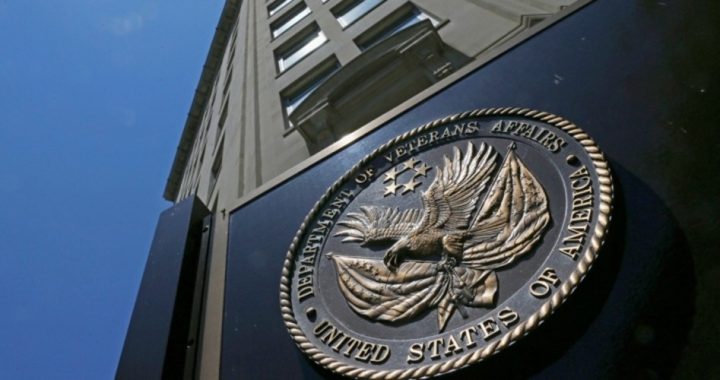
Reports indicate that officials at the Department of Veterans Affairs have been retaliating against VA whistleblowers by going through their medical records in order to harass and discredit them.
The VA has been under harsh scrutiny since reports last year exposed that the Phoenix facility had been altering its scheduling books and that at least 40 veterans had died while awaiting care. The Washington Times reported, “Whistleblowers at other facilities then came forward with similar reports of secret wait lists and poor scheduling, some of which have been substantiated by an internal audit.”
Further reports revealed that even after whistleblowers had brought these major issues to the attention of VA officials, the warnings were not heeded.
Former VA Secretary Eric Shinseki resigned amid the national scandal, and was replaced by Bob McDonald, who announced that he wanted to make “every employee a whistleblower” and create a fresh culture that “celebrates them.” Those promised reforms have yet to be seen.
Reports indicate that those in the Department of Veterans Affairs who blew the whistle on all the issues at VA hospitals have since been experiencing various types of retaliation. Special Counsel Carolyn Lerner recently confirmed this in testimony during a House Veterans Affairs subcommittee hearing, reports The Blaze.
According to Lerner, many of the whistleblowers are veterans themselves, who have been seeking care at the VA.
“In several cases, the medical records of whistleblowers have been accessed and information in those records has apparently been used to attempt to discredit the whistleblowers, she said, adding, “We will aggressively pursue relief for whistleblowers in these and other cases where the facts and circumstances support corrective action.”
One such incidence involves Marine Corps veteran Brandon Coleman, who works at the VA system in Phoenix. He stated that after he publicized the failures of his VA office, his own mental health was called into questioned by his superiors, and the VA has now threatened to reduce his disability rating.
The Blaze writes that accusations of VA officials illegally scrutinizing their employees’ records date back to 2010, when the Pittsburgh Tribune-Review reported that a VA official was convinced that her superiors had gone through her records, which prompted them to later make comments regarding her psychological care. Results from that report revealed over 14,000 privacy violations at that one Pittsburgh center.
In a press release issued in July 2014, the U.S. Office of the Special Counsel (OSC) indicated that it has received numerous complaints of retaliation from employees at VA facilities in Puerto Rico as well as 18 states — Arkansas, Arizona, California, Colorado, Delaware, Florida, Georgia, Iowa, Kentucky, Michigan, North Carolina, New York, Pennsylvania, South Carolina, Tennessee, Texas, Utah, and Wyoming — but the release did not identify the facilities. Those complaints have resulted in an ongoing investigation.
Nick Schwellenbach, a spokesman for the OSC, told NBC News last year that the VA has “one of the highest reprisal case rates in the federal government.” He added, “We’re concerned by what we’re seeing…. The frequency of retaliation complaints has given us a lot of pause.”
For example, Valerie Riviello, a nurse at the Albany Stratton VA Medical Center in New York, reported that she was reprimanded for releasing a sexual assault survivor who had been restrained to a bed for seven consecutive hours. The very next day she was reassigned to a desk job — a position that allows her no contact with patients.
According to the Washington Times, Riviello was “one of more than 50 whistleblowers who say the Veterans Affairs Department retaliated against them for trying to do their jobs.”
Riviello stated at the time that the retribution against her served to intimidate other nurses at her facility from speaking up. “The nurses are afraid to complain or report anything,” she said. “They have 100 things they’ve noticed, but they’ve seen what is happening to me so they’re afraid to report anything.”
Whistleblowers in the Los Angeles VA Health Care System experienced particularly extreme forms of retribution.
“Isolate. Then defame. Moving me to a storage bin makes me feel bad, but they are sending a message. They are trying to suppress [whistleblowers’] willingness to try to make a better life for these veterans,” said Dr. Christian Head, who reported to Congress about patient wait time cover-ups at the VA’s Greater Los Angeles VA Health Care System.
Shortly afterward, the locks to Dr. Head’s office were changed, and he was moved to a “tiny, dirty, poorly furnished closet-sized office,” and was nearly turned away from an operating room while his patient was under anesthesia, reported the Washington Post.
Dr. Head told lawmakers that when he raised these issues with his supervisors, one of them retorted, “If you don’t like it, you’re a whistleblower. Take it to Congress.”
Meghan Flanz, director of the VA’s Office of Accountability Review, and Special Counsel Carolyn Lerner explained that it is necessary to change the “culture” of the VA, and that the process will be a slow one.
Lerner revealed that her office hears complaints from all departments of the federal government, but that 40 percent of them are now coming from the VA.
“The number of new whistleblower cases from VA employees remains overwhelming,” she asserted. “These cases include disclosures to OSC of waste, fraud, abuse, and threats to the health and safety of veterans, and also claims of retaliation for reporting such concerns.”
But congressional leaders have grown frustrated by the continued absence of the reforms that were promised at the VA, and the agency’s seeming refusal to punish those who retaliated against the whistleblowers.
“The hostility they receive for their conscientious behavior shows that the retaliatory culture, where whistleblowers are castigated for bringing problems to light, is still very much alive and well in the Department of Veterans Affairs,” said Rep. Mike Coffman, (R-Colo.). “The truth of the matter is, the Congress needs whistleblowers within federal agencies to help identify problems on the ground in order to remain properly informed for the development of effective legislation.”
Lawmakers on both sides of the aisle are fed up.
“It seems to me if you want to send a message that wrongdoers are going to be held accountable, you actually have to hold one accountable,” declared Rep. Kathleen Rice (D-N.Y.).
Photo of seal fixed to front of Department of Veterans Affairs building in Washington: AP Images




